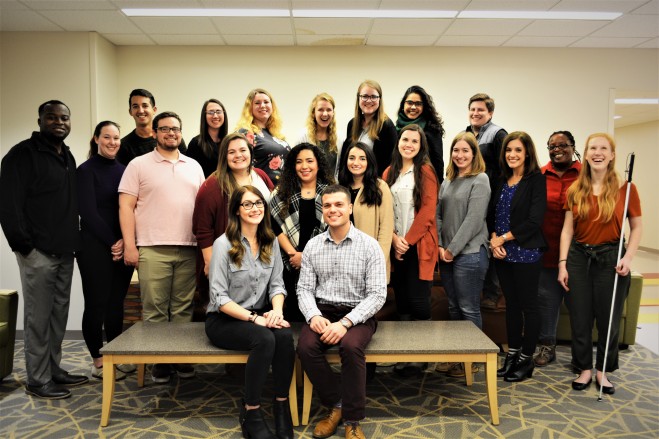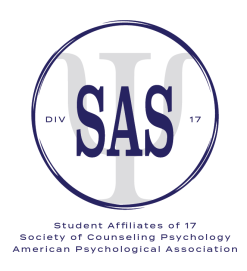Climate
change (i.e., “global warming”) is here, likely to stay, and will most likely
get significantly worse within the next 30 years, according to a leading report
released by a panel of United Nations (UN) experts (Allen et al., 2018). This report’s essential take away is this: As
the Earth warms, climate systems become unstable and ultimately cause adverse
impacts to human health through a variety of natural and human mediated
systems. Unfortunately, reports conducted by the American Psychological
Association (APA; Clayton, Manning, Krygsman, & Speiser, 2017), United
States Global Change Research Program (USGCRP; Dodgen et al., 2016) and the UN
(Allen et al., 2018) indicate that these adverse health outcomes are more
likely to occur within marginalized communities. Although counseling psychology’s commitment
to social justice has often led the field to address other issues facing
marginalized communities, counseling psychology’s capacity to contribute to the
conversation on climate change as a social justice is ripe for development. While public concern and awareness toward
climate change has been substantially increasing over time (Jones & Saad,
2017), climate change has yet to be explicitly discussed in the counseling
psychology literature. This begs the question: what does climate change have to
do with counseling psychology?
The
turn of the decade (2009-2011) was a busy time for the APA in regard to
understanding and addressing climate change.
In 2008, an APA task force on and global climate change released a report entitled, Psychology & global climate change: Addressing a multifaceted
phenomenon and set of challenges (Swim, et al, 2009). The American
Psychologist ran a special issue in 2011 on psychologist’s contributions to
global climate change efforts, which provided a strong foundation for better
understanding the psychological principles present in climate change. In tandem with the special issue, the APA
released a Resolution on Affirming
Psychologists Role in Addressing Global Climate Change that (re)affirmed
psychology’s role in addressing behavioral contributions to climate change and
recognized that global climate change affects those who are underprivileged and
disenfranchised (American Psychological Association, 2011). These publications, followed by the release
of the updated UN climate change reports in 2018, provide a strong foundation
for the importance of climate change within psychology and the relationship
between health, climate change, and marginalized communities.
So,
it turns out that climate change actually has a lot to do with counseling
psychology, despite it being an issue that lives in the periphery of our awareness.
The reports named above (Allen et al.,
2018; Clayton et al., 2017; Dodgen et al, 2016) provide strong support for the
contention that marginalized communities experience negative outcomes in
physical and mental health. Specifically,
they find that the impacts to physical health occur along three pathways: extreme weather (e.g., natural disaster,
heatwaves, floods, droughts, and fires), natural systems (e.g., vector-born
disease, food and water infections, nutrition and demised air quality), and anthropogenic
systems (e.g., occupational hazard, and violence and conflict). Adverse mental
health outcomes can be direct such as trauma, shock, loss, and grief or
indirect such as increases in aggression, violence, and mental health
emergencies; solostalgia (i.e., loss of place attachment); loss of autonomy and
control; helplessness; depression; fear; resignation; and eco-anxiety. Although these physical and mental health
impacts occur within non-marginalized communities, research suggests that they
are more likely to have greater impact to marginalized communities.
Indeed,
although climate change impacts everyone, an insidious characteristic is that
the negative outcomes are more likely to be distributed among many different
communities (Allen et al., 2018). For
example, longitudinal survey data following Hurricane Katrina found that
adverse health outcomes were significantly greater among African Americans,
older adults, women, single adults, those with fewer years of education, and
with fewer social supports when compared to the general population (Adeolo & Picou,
2014; Picou & Hudson, 2010). However, when considering the broad-spectrum
of climate change, the list of marginalized communities commonly discussed in
the literature grows significantly and often includes: children
and older adults; women; African Americans; individuals in a lower
socioeconomic group; those with developmental or acquired disability;
individuals with pre-existing mental and physical health conditions; indigenous
communities; immigrant communities; those with limited language proficiency for
their current location; and communities in geographic regions prone to specific
weather changes. Clearly, climate change
is an issue that places a greater burden among a large portion of (if not all)
marginalized populations.
Fortunately,
counseling psychology has worked to balance the injustices found in many
complex dilemmas facing marginalized communities. One must simply recall our intro to
counseling psychology course, peruse The
Handbook of Social Justice in Counseling Psychology (Toperek, Gerstein, Fouad, &
Roysicar, 2006), or grab coffee with a member of the field to learn about a
plethora of examples, a discussion beyond the limit and scope of this article. Despite counseling psychology’s historical
commitment to addressing injustice within marginalized communities, we do not
know how, or if, counseling psychology will work to address those issues posed
by climate change. Further research is needed to better understand what
counseling psychologist’s think about climate change and if they believe it
should be addressed within the field.
Currently,
we are conducting a qualitative study to better understand the topic discussed
in this article. If you would like to
lend your voice to this conversation, have any questions, or would like
additional information, please feel free to email at Phil Schulte at pschulte@radford.edu.
Philip Schulte is a doctoral student in the Counseling Psychology program at Radford University.
To download the PDF version of this document, click here:

